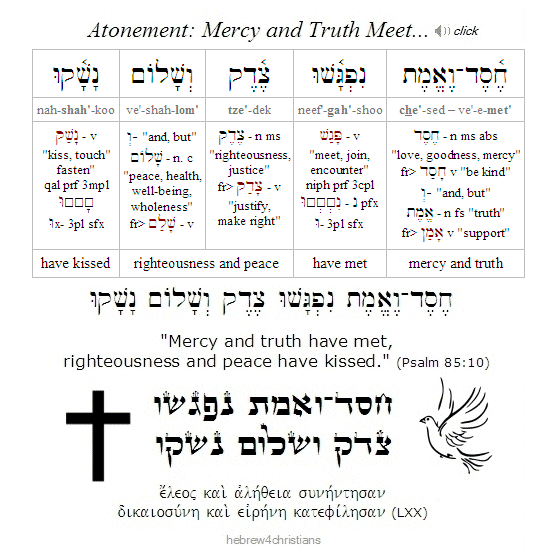|
In our "postmodern" and narcissistic age the word "sin" no longer refers to selfish or malicious actions that violate the will of God, but has been redefined in psychological (or social) terms, usually as a form of "disorder" that imprisons people to self-defeating or "unhealthy" habits. Humanistically speaking, "forgiveness of sin" means "adjusting the person" to be free from any anxiety of divine judgment, with the therapeutic goal of enabling the soul to pursue personal happiness (or retribution) without regard to the moral law of God... Evil is no longer considered a viable category for understanding human behavior, and therefore humanism reduces the person to biochemical or genetic or "social" processes. Morality has been "medicalized," and if someone does something harmful to others, such murdering them, it is no longer a matter of personal responsibility but a more systemic problem that involves a complex constellation of causes that dissolves a person's responsibility for their actions. A terrorist or other sociopath, for example, is really a victim of forces beyond their control.
In the Scriptures, the most common Hebrew word for sin (i.e., chet: ūŚųĄūśų░ūÉ) is often translated as "missing the mark" (i.e., of the divine ideal) though that definition does not capture the intent of the person, that is, the decision (often subconsciously expressed) to aim at a mark contrary to what is good. Sinning, in other words, should not be regarded as passively "missing" the will of God, as if it were an "accident" of some sort, but rather as actively defying God's will by choosing a different goal altogether. In this sense sin may be understood as treason against truth, open rebellion against divine authority, the willful defiance of moral order, and the deification of the self as the object of ultimate concern... Sin is the expression of idolatry within the human heart. It is an inner perversity that defiantly refuses to forgive but clings to anger to excuse bringing its pain to others.
Rightly understood, then, sin is not an occasional "misstep" of the will, but an eternal falling away from the Eternal -- an ontological break from Reality and Truth. We are not sinners because we sin, we sin because we are sinners, and that means that we need deliverance ŌĆō objective salvation and healing ŌĆō from the root problem of "spiritual death" (i.e., mavet ruchani: ū×ųĖūĢųČū¬ ū©ūĢų╝ūŚųĖūĀų┤ūÖ). The first and necessary condition for receiving deliverance, then, is rigorous honesty, especially with ourselves: "The purest of heart is precisely the one most willing to comprehend his own guilt most deeply. Without purity of heart, no one can see God, and without becoming a sinner, no human being can come to know God" (Soren Kierkegaard). We must be careful here. This is not a matter of "morality" or "ethics" ŌĆō that is, a failure to understand what is right, but instead constitutes an unwillingness to understand, a refusal to will the rightness of truth. That is why the original sin was rooted in an act of will, not in an act of knowing, since the essence of the temptation was expressed in the decision to define good and evil in merely human terms (Gen. 2:17).
The punishment for sin is "karet judgment," that is, spiritual excision or being cut off from the source of life. As it is written: "the soul that sins shall die" (Ezek. 18:4). The damage caused by sin cannot be overstated since it yields a lost inner condition of the soul that is spiritual or eternal death... The remedy to this tragic condition comes when our relationship with God is restored by means of the atonement of Messiah and the gift of a new life. We sometimes focus on our need to do teshuvah, though the Hebrew word means answering God's invitation to find life in him. God's passion given in Yeshua is the question of faith - whether you will receive the gift of righteousness or you will seek your own way to justify your existence... The prerequisite for receiving the blessing of life, however, is a sense of irremediable loss and brokenness - the conviction that you are separated from the divine life, that you are under karet judgment and disconnected from hope. The miracle occurs when you trust that healing and peace are given to you based on the personal intervention of the Savior on your behalf. "God made the one who did not know sin to be sin for you, so that in him you would become the righteousness of God" (2 Cor. 5:21). This great exchange, this substitutionary atonement, is the basis of the secret healing (ūŚųĘūÖų╝ųĄūÖ ūóūĢų╣ū£ųĖūØ) that issues from God to those of us who trust in Yeshua.
We can only find deliverance through the consciousness of our own willful sin and need for divine deliverance, and any attempt to enter by another way constitutes treason against the message of the cross of Messiah. This is the "terrible struggle" with the Eternal ŌĆō with God and oneself ŌĆō as we let go and die to the self-life; as we surrender and engage God's truth ŌĆō which again is not found by mere intellectual assent, but by an act of will, by teshuvah, by faith, and by learning to find faith despite yourself along the way. The LORD "dwells" with one who is of a contrite and lowly spirit (Isa. 57:15), he "tabernacles" within the heart of the poor in spirit, with those who mourn over sin and who hunger and thirst for His righteousness....
 |
"Be holy as I am holy" (Lev. 19:2). This doesn't mean wrapping yourself up in some protective cloak of religious rituals as much as it means accepting your own atonement: reconciling who you are with your past, finding healing and love, and walking in genuine hope... Holiness isn't as much "separation" from the profane as it is "consecration" to the sacred, and in that sense it is a kind of teshuvah, a turning of the heart back to reality.... Negatively put, "being holy" is turning away from fear, despair, and anger; positively put, it is embracing the worth and value of life, honoring the Divine Presence, and walking in the radiance of God's love. Now that's the reason for teshuvah! Hashivenu Adonai....
|




